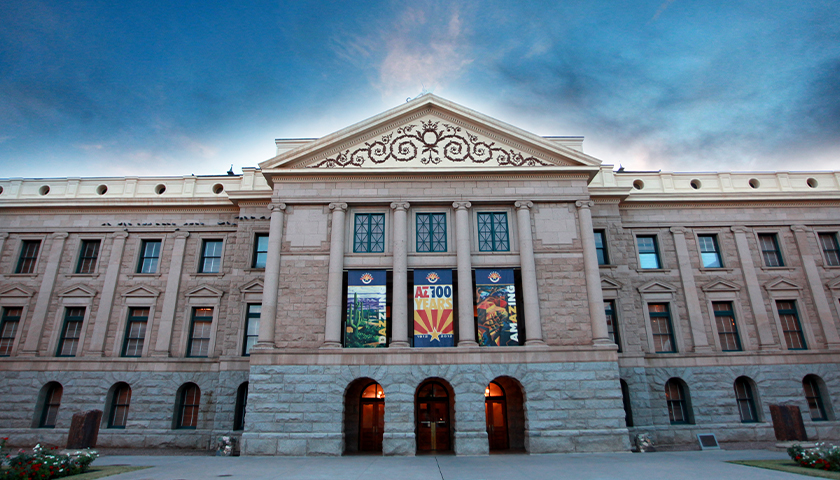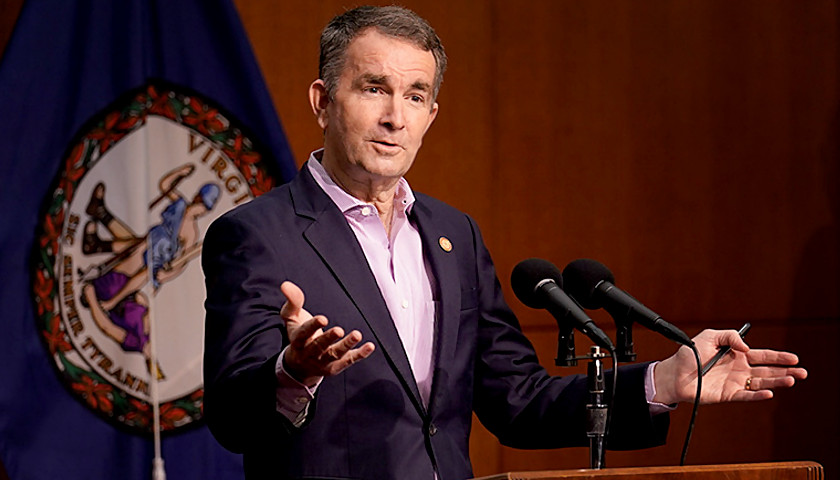Tennessee saw $467 million in gross wagers and $8.6 million in privilege tax paid in January, making it the third highest amount of wagers the state has seen since betting began in November 2020.
Read the full storyTag: tax revenues
Florida Officials Forecast State’s Economy, Tax Revenues Will Continue Growth
Despite incorrectly predicting a mild recession for the first two quarters this year, Florida officials estimate that the state’s economy and tax revenues will continue to grow.
The Office of Economic and Demographic Research held a Revenue Estimating Conference last week, with officials saying that the “current economic environment presented significant forecasting challenges.”
Read the full storyFlorida Officials Forecast State’s Economy, Tax Revenues Will Continue Growth
Despite incorrectly predicting a mild recession for the first two quarters this year, Florida officials estimate that the state’s economy and tax revenues will continue to grow.
The Office of Economic and Demographic Research held a Revenue Estimating Conference last week, with officials saying that the “current economic environment presented significant forecasting challenges.”
Read the full storyCommentary: Could the Baby Boomer Retirement Wave and Labor Shortages Absorb the Recession?
The national unemployment rate dipped to 3.5 percent in July, according to the latest data from the Bureau of Labor Statistics, once again hitting more than 50-year lows.
It’s still peak employment as far as the eye can see. Even with the past two years’ high inflation dropping dramatically and disinflation usually correlating with higher unemployment and a recession, that simply has not occurred yet, despite all the warning signs typically associated with an economic slowdown or downturn.
Read the full storyStudy: Electric Vehicles Could Cost Michigan $95 Million Annually in Lost Tax Revenues
As the number of electric vehicles grows in Michigan, so does the revenue hole from missing gas taxes that fix the damn roads.
The newly formed Coalition on Electric Vehicles and Transportation Revenue says lawmakers need to replace road funding lost by a growing number of EV drivers who don’t pay state or federal gas taxes.
Read the full storyMichigan Projects $9.2B Surplus, Which Could Trigger a Tax Cut
Despite a possible mild recession, Michigan’s fiscal experts project a $9.2 billion taxpayer surplus that could trigger a tax cut.
Nonpartisan fiscal agencies project Michigan will gather $32.4 billion in revenue for the 2022-23 fiscal year.
Read the full storyVirginia Will Enter Next Session with Money Surplus
Virginia lawmakers will enter their next regular session in January as the state continues to record budget surpluses.
The commonwealth finished the last fiscal year with a surplus of nearly $2 billion and the state revenue collections continue to exceed expectations. Some economists are warning against using the excess money to increase spending during the legislative session.
Read the full storyGeorgia’s Tax Revenues Decreased by $2.4 Million in November
One day after Republican leaders called on returning more than $1 billion to Georgia taxpayers, the state revealed some bad news.
On Friday, state officials reported November’s total general fund receipts decreased by 0.1% — or nearly $2.4 million — compared to November 2021. Still, tax collections surpassed $2.2 billion for the month and net sales and use tax collections increased by 9.8%.
Read the full storyNovember Tax Revenues Down for Pennsylvania, but Still $700 Million Above Estimate
Pennsylvania’s tax revenues are $129 million short of expectations, though overall collections remain above initial estimates in the latest revenue update from the Independent Fiscal Office.
Even though the November collections were 4.5% less than anticipated, the fiscal-year-to-date revenues are about $732 million above estimates, an almost 5% increase.
Read the full storyDespite Recession Fears, Georgia Tax Revenues Continue to Increase
Georgia continues to see its revenues increase amid ongoing economic concerns nationwide.
State officials said Friday that the Peach State’s September net tax collections totaled nearly $3.1 billion. That represents an increase of 9.9% over a year ago.
Read the full storyState Tax Revenues in May Exceeded Budgeted Estimates, per Tennessee Department of Finance and Administration
The Tennessee Department of Finance and Administration announced Tuesday that overall May state tax revenues exceeded budgeted estimates. On an accrual basis, May is the tenth month in the 2021-2022 fiscal year.
Read the full storyGeorgia Tax Revenues Continue to Climb as Tax Collections Up by $5.8 Billion
Georgia saw its May tax revenues increase by 1.6% from a year ago as tax collections approached $2.7 billion for the month.
This fiscal year, state general fund receipts exceeded $30.2 billion. That represents a 23.9%, or more than $5.8 billion, increase over collections last fiscal year, which exceeded $24.3 billion at the same point.
Read the full storyCommentary: Sports Stadiums Don’t Create New Jobs and Tax Revenues
Over the last few weeks, rumors have been circulating that the Kansas City Chiefs are considering moving from Kansas City, Missouri to Kansas City, Kansas.
Read the full storyGeorgia Tax Revenues Are Up 45.5 Percent over Last March’s Collections
Georgia is rolling in the dough.
State officials said net tax collections for March exceeded $2.7 billion, an increase of $862.9 million, or 45.5%, over last March. So far this year, net tax collections topped $22.5 billion, an increase of nearly $3.6 billion, or 18.9%, compared to last fiscal year.
Read the full storyTwo Tools Track Arizona Governments, Reveal Missteps and Waste
It is National Sunshine Week, which celebrates transparency in government, including creating awareness about requesting information from governments through FOIA public record requests. In Arizona, there are two tools provided by state agencies which allow anyone to look online at some of the government spending by state and local governments. Although it is a minimal amount of data, it reveals some missteps and waste.
The Arizona State Treasurer manages AZCheckbook.com, which provides information about funding the state gets from all sources, including the federal government, and how much it is distributing to schools, cities, and towns. The Arizona Department of Administration operates OpenBooks.AZ.gov, which provides checkbook-level information about individual state expenditures, including on the city and county level.
Read the full storyGeorgia’s Net Tax Collections Total Nearly $2B in February
Georgia’s decision to delay processing tax year 2020 individual returns helped lead to a net tax collection of nearly $2 billion in February.
Georgia followed the Internal Revenue Service’s guidance of not accepting and processing 2020 returns until Feb. 12. The deferment led to a delay in tax refunds, which resulted in higher than usual individual income tax collections, Gov. Brian Kemp’s office said in a news release.
Read the full storyGov. Northam Claims ‘Revenue Picture Remains Stable’ Despite Double-Digit Drops in Virginia Tax Collections
Despite a double-digit percentage drop in payroll taxes in January and a dip in overall General Fund collections, Virginia Gov. Ralph Northam said the state’s revenue remains stable.
The state’s January 2021 revenue report showed payroll withholding taxes down 12.6% for the month compared with last January, but the state said the decrease was expected because of one less deposit day compared with a year ago. The report said collections of the sales and use taxes, showing December sales, rose 5.6% in January, and the combined December and January receipts rose 5.4% over the same time from a year ago.
Read the full storyAnalysis: Tennessee, Other States Should Expect Significant Revenue Shortfalls in State Budgets
State governments, including Tennessee’s, should expect revenue shortfalls because of the economic impact of the COVID-19 pandemic, according to an analysis released by Pew.
Revenue forecast predictions that predate the COVID-19 pandemic are out of date because of skyrocketing unemployment, regulations on businesses and restrictions on people leaving their homes. This negatively will affect income-tax revenue, sales-tax revenue, business-tax revenue and likely other minor sources of revenue.
In Tennessee, nonessential businesses have been closed, restaurants have been forced to only carry-out and delivery services and people are not allowed to leave their homes for nonessential activities.
Gov. Bill Lee and the Tennessee General Assembly sought to get ahead of the crisis by altering the state budget proposal when the crisis began. The new budget removed some initiatives and diverted funding from education, teacher-salary increases and other public-employee salary increases to fund efforts to combat COVID-19 and the rainy day fund.
Read the full story















